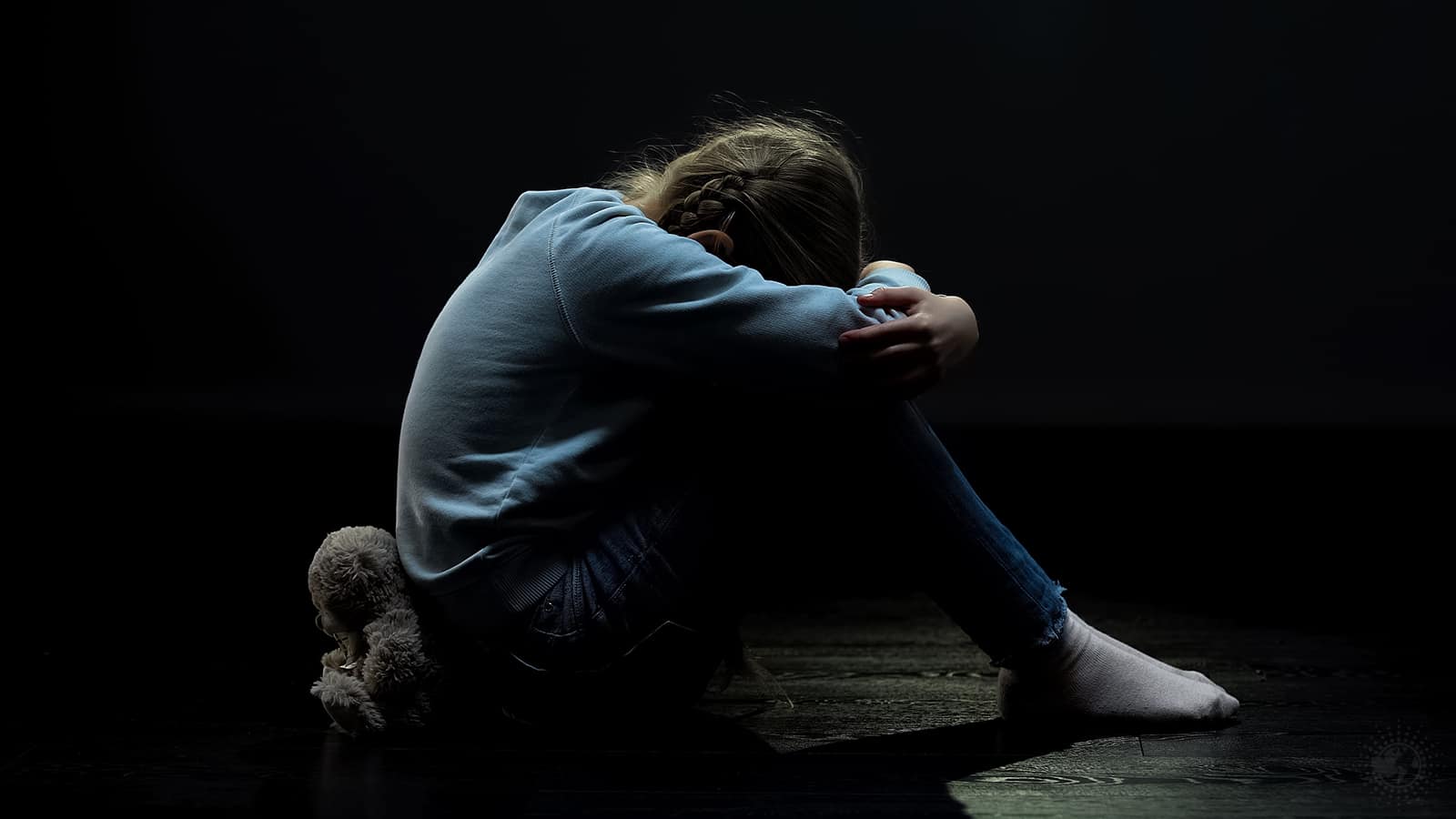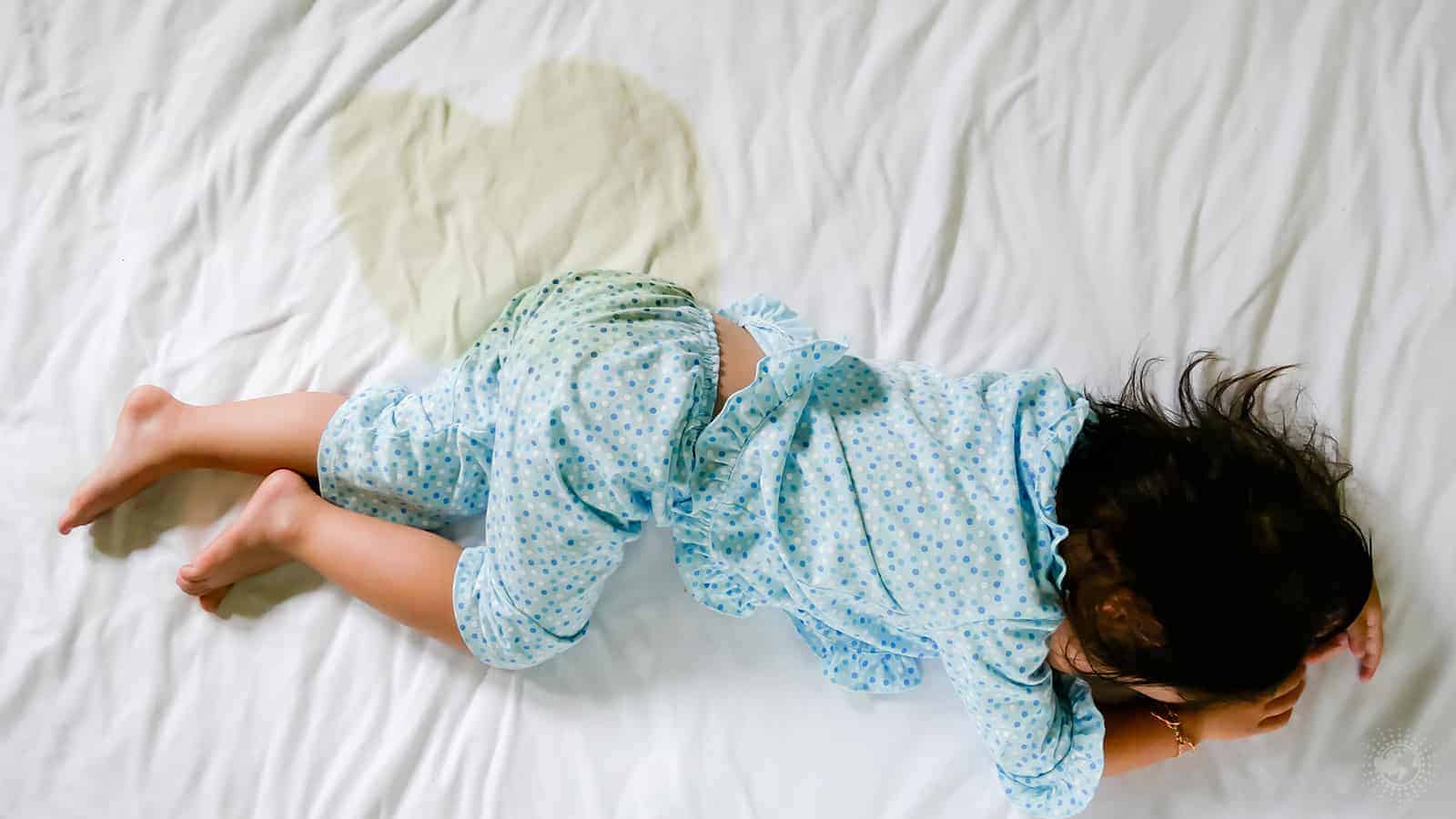Has your child not been acting like themselves lately? Do you feel frustrated because you know something is wrong, but you can’t put your finger on it? They don’t appear sick, yet they are acting abnormally.
Children don’t come with a manual that helps you detect their various moods, ailments, or issues in life. A good parent must use their detective skills because what appears to be one problem can have a different root cause. One such medical condition is anxiety in children.
Anxiety is the great pretender. It can make even a child think and feel things that are not normal. In adults, this condition comes out in manners that is not always the same for a child.
Children can’t always express what they feel like a grown-up, so they will act out to let you know they’re hurting. It’s up to you to use these “Morse Code” type symptoms they display to dictate what’s going on.
Ten Common Signs of Anxiety in Children (Parents Miss These!)
If you know something is not right with your child, you may be quick to assume they’re being bullied, have an underlying medical issue, or are going through puberty-related problems. However, anxiety in children often comes out in mysterious ways. Here are the ten most common signs of an underlying anxiety disorder in kids.
 1. Hyperactivity
1. Hyperactivity
When a child is hyper and acting out, you’re probably going to assume they’ve had too much junk food. However, if the hyperactivity issue continues, you may consider a diagnosis like attention-deficit hyperactivity disorder. According to the National Institute of Mental Health, things like genetics, environmental toxins, brain injuries, and low birth weight can lead to this neurological condition.
However, just because it seems to be one thing doesn’t mean that’s what’s going on; it can be different. Anxiety can mimic hyperactivity. The child who feels overly anxious may be extra hyper because the angst they feel won’t allow them to relax.
2. Tantrums
Sadly, temper tantrums would appear normal for the toddler age group, but even teenagers can have meltdowns and tantrums when they don’t get their way. Another sign of anxiety is having outbursts. These explosions happen when someone cannot regulate their emotions or moods, and anxiety can certainly put you in a bad mood.
When your child feels horrible and doesn’t know how to put things into words for you, their actions can speak volumes. Having frequent meltdowns in children who usually don’t act this way is a cause for alarm.
3. Conversion Symptoms Like Stomach Aches Other Bodily Pains
One of the most common signs of anxiety in children has everything to do with conversion or somatoform symptoms. The medical condition of functional neurological symptom disorder means that the body converts mental angst into physical symptoms. If your child is complaining of headaches and stomachaches often, it might be anxiety-based.
When a child presents with a stomachache, it would be easy to assume they had a virus. However, when the stomachache is still occurring days or weeks later, then further evaluation is needed.
4. Agitation is a Symptom of Anxiety in Children
Anger is one of the easiest emotions to show, and it seems to be the “cure-all” for whatever someone is feeling. How many times have you been angry in the past week? If someone rubs you the wrong way, anger easily comes to the surface as it’s a powerful emotion.
Your child may be showing signs of agitation and aggression that weren’t a regular part of their personality. These signs can be concerning as they can lead them to trouble at school and at home. Agitation is a common sign of anxiety in children.
5. Restlessness
Have you ever heard the adage that someone was acting like a cat on a hot tin roof? Well, the metal from the roof would burn their feet, so felines would dance around until they could remove themselves from this situation. You may use this term about your child at times.
Does your child pace the floor, look worried, have a hard time focusing on playtime, or refuse to eat? Restlessness is a sign of inner turmoil. Think about the times you’ve felt restless and paced the floor as well as just felt general unrest.
It’s often impossible to put those feelings into words, which may be the reason why your child cannot tell you what’s wrong.
6. Refusing to Go to Bed
Anxiety is always the worst at night, and if your child is refusing to go to bed, it can be an indicator of panic. They may fear the dark, the house being eerily quiet, and the overall isolation that comes with the night season.
Depending on the child’s age, they may fear monsters, ghosts, or other things that go bump in the night. If your child is suddenly refusing to go to bed at night, or they need ten drinks and two trips to the restroom before they settle down, it could be anxiety to blame.
7. Crying
Some kids are more emotional than others. Consequently, if a child is more whiny than average or starts to cry a lot, it’s a sign of trouble. You probably won’t guess anxiety as the root cause of a crying child, but it can be.
When their emotional load becomes more than they can handle, they can have these outbursts to help them feel better. Crying is a natural way to release pent-up angst, and they may be trying to get what’s on the inside to the outside.
8. Refusing to Go to School or Other Activities
Does your once social butterfly now prefer to stay in their bedroom alone? You can expect that as a child ages they will like their alone time, especially during the teenage years. There are many different types of anxiety, and one type of anxiety you should watch for is the social variety.
Social anxiety can make life so difficult for a person who must go to school and activities each day. They may fear things like people laughing at them, not being good enough, or falling in front of others. Anxiety can make a person think about all sorts of things that aren’t true, and social anxiety is a severe mental condition.
If this condition is left untreated, it can turn into agoraphobia, which is where the child will be fearful of even leaving home. According to the National Institute of Mental Health, children who have agoraphobia feel trapped in situations where escape might be difficult.
9. Worrying About the Future
Fears about the future are typical as an older child considers their life’s path. However, when they cannot control these worries and seem to take over their life, it can be a sign of anxiety. It’s advisable not to allow your children to watch the news or any programing with violence in them.
Even all these crime scene and detective shows can be too much for their minds to handle. You can cause anxiety in children by allowing them to watch programs on television beyond their grasp. Monitor the video games they play, the shows they watch, and the websites they visit on the internet, as these can help to add fuel to the fire of anxiety.
10. Irrational Fears
Children often have irrational fears, such as the boogeyman or monsters living under their bed. While it’s normal to experience some of these problems, it’s often easy for these fears to take over their life. The world excites the paranormal and explores such things, but it might be too much for a child who delves into this realm.
As parents, it’s essential to address irrational fears on a level that your child can understand. Irrational fears can cause significant anxiety, and it’s something that can often be prevented by monitoring their intake. However, some children are genetically disposed to anxiety, so you need to be on higher alert for such issues if it runs in the family.
 Final Thoughts on Recognizing the Red Flags of Anxiety in Children
Final Thoughts on Recognizing the Red Flags of Anxiety in Children
Anxiety in children is a complex condition. It affects more than seven percent of kids between the ages of 3-17, according to a study referenced by the National Alliance on Mental Health. However, it affects about 19 percent of the adult population.
Studies show that most people who have this mental illness usually have an onset of symptoms before they’re 21 years of age. Sadly, it can also develop after trauma or a period of severe illness. As parents, you must constantly be on guard and aware of your child’s symptoms complaints about feeling.
What seems like a textbook case of attention-deficit hyperactivity disorder can be anxiety-based? Since there are various branches of anxiety, like general, obsessive-compulsive, panic, and agoraphobia, it’s hard to pinpoint the type you’re dealing with in your kid. It’s essential to get the help and guidance of a trusted counselor to help address these mental health concerns and identify the type.
Living with anxiety is never easy, regardless of your age. Sadly, when you’re a child and cannot fully articulate what’s going on inside the body, the parents must become a detective to resolve.




















